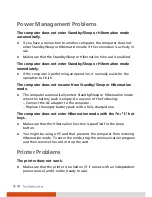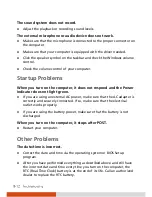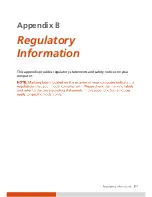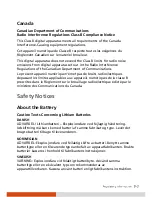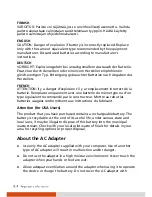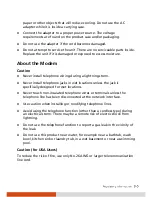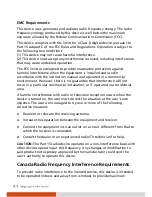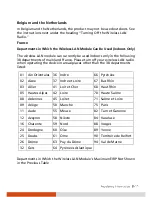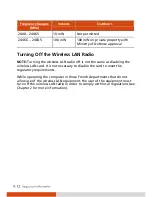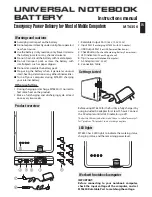
EMC Requirements
This device uses, generates and radiates radio frequency energy. The radio
frequency energy produced by this device is well below the maximum
exposure allowed by the Federal Communications Commission (FCC).
This device complies with the limits for a Class B digital device pursuant to
Part 15 subpart C of the FCC Rules and Regulations. Operation is subject to
the following two conditions:
(1) This device may not cause harmful interference.
(2) This device must accept any interference received, including interference
that may cause undesired operation.
The FCC limits are designed to provide reasonable protection against
harmful interference when the equipment is installed and used in
accordance with the instruction manual and operated in a commercial
environment. However, there is no guarantee that interference will not
occur in a particular commercial installation, or if operated in a residential
area.
If harmful interference with radio or television reception occurs when the
device is turned on, the user must correct the situation at the user’s own
expense. The user is encouraged to try one or more of the following
corrective measures:
Reorient or relocate the receiving antenna.
Increase the separation between the equipment and receiver.
Connect the equipment into an outlet on a circuit different from that to
which the receiver is connected.
Consult the dealer or an experienced radio/TV technician for help.
CAUTION:
The Part 15 radio device operates on a non-interference basis with
other devices operating at this frequency. Any changes or modification to
said product not expressly approved by the manufacturer could void the
user’s authority to operate this device.
Canada Radio Frequency Interference Requirements
To prevent radio interference to the licensed service, this device is intended
to be operated indoors and away from windows to provide maximum

